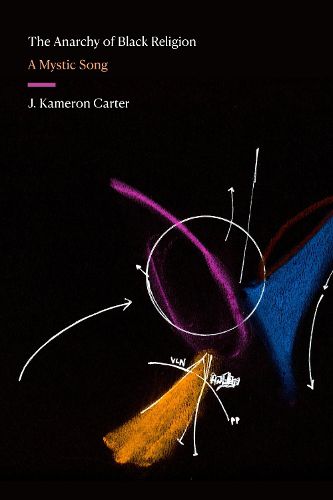Readings Newsletter
Become a Readings Member to make your shopping experience even easier.
Sign in or sign up for free!
You’re not far away from qualifying for FREE standard shipping within Australia
You’ve qualified for FREE standard shipping within Australia
The cart is loading…






In The Anarchy of Black Religion, J. Kameron Carter examines the deeper philosophical, theological, and religious history that animates our times to advance a new approach to understanding religion. Drawing on the black radical tradition and black feminism, Carter explores the modern invention of religion as central to settler colonial racial technologies wherein antiblackness is a founding and guiding religious principle of the modern world. He therefore sets black religion apart from modern religion, even as it tries to include and enclose it. Carter calls this approach the black study of religion. Black religion emerges not as doctrinal, confessional, or denominational but as a set of poetic and artistic strategies for improvisatory living and gathering. Potentiating non-exclusionary belonging, black religion is anarchic, mystical, and experimental: it reveals alternative relationalities and visions of matter that can counter capitalism's extractive, individualistic, and imperialist ideology. By enacting a black study of religion, Carter elucidates the violence of religion as the violence of modern life while also opening an alternate praxis of the sacred.
$9.00 standard shipping within Australia
FREE standard shipping within Australia for orders over $100.00
Express & International shipping calculated at checkout
In The Anarchy of Black Religion, J. Kameron Carter examines the deeper philosophical, theological, and religious history that animates our times to advance a new approach to understanding religion. Drawing on the black radical tradition and black feminism, Carter explores the modern invention of religion as central to settler colonial racial technologies wherein antiblackness is a founding and guiding religious principle of the modern world. He therefore sets black religion apart from modern religion, even as it tries to include and enclose it. Carter calls this approach the black study of religion. Black religion emerges not as doctrinal, confessional, or denominational but as a set of poetic and artistic strategies for improvisatory living and gathering. Potentiating non-exclusionary belonging, black religion is anarchic, mystical, and experimental: it reveals alternative relationalities and visions of matter that can counter capitalism's extractive, individualistic, and imperialist ideology. By enacting a black study of religion, Carter elucidates the violence of religion as the violence of modern life while also opening an alternate praxis of the sacred.